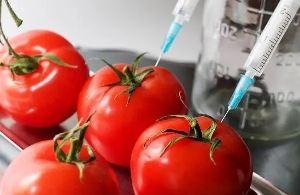ActionAid Ghana (AAG) has joined stakeholders in reaffirming its stance against the proliferation of genetically modified organisms (GMO) foods in the country.
It said its opposition is to protect the interests and livelihoods of smallholder farmers, who constitute the backbone of the country’s agricultural production. It has also expressed concerns about the implications of the government’s approval of the commercialisation of 14 GMO foods in Ghana.
With the current economic challenges widening the poverty gap, AAG has urged the government to prioritise agroecology as a sustainable farming approach and to reconsider its recent decision to lift restrictions on GMOs.
In a statement, AAG highlighted that the decision poses serious threats to biodiversity, food security and the welfare of vulnerable people. As a result, it is imperative to adopt agroecological principles to create resilient and sustainable food systems prioritising the welfare of constituents.
Additionally, besides urging the government to halt the commercialisation of genetically modified organisms, AAG identified crucial measures for the government to consider. These include funding the Ministry of Agriculture to ensure sufficient support for agroecological practices as well as training and knowledge-sharing among smallholder farmers.
Moreover, AAG emphasised the essential role of female smallholder farmers in the food production process and called on the government to acknowledge and support them accordingly.
AAG also urged the government to suspend the commercialisation of GMOs until thorough research on their effects on human life and public consultations are conducted. They argued that the government’s decision lacked proper consultation, denying citizens the right to voice their opinions on what they consume. Furthermore, AAG criticised the National Biosafety Authority (NBA) for actively promoting GMOs, which compromised the institution’s independence and the nation’s interests.
Business News of Tuesday, 30 April 2024
Source: thebftonline.com

















